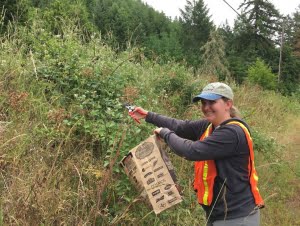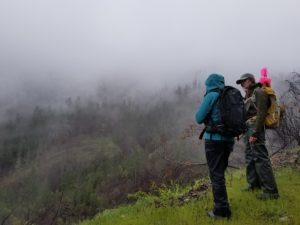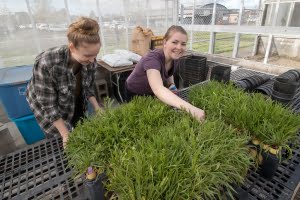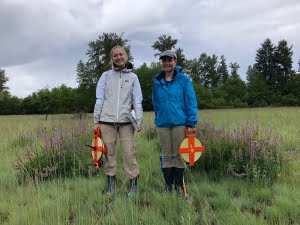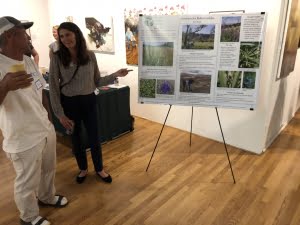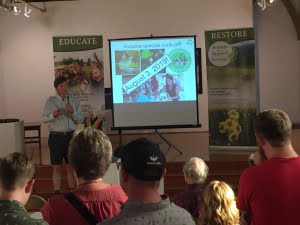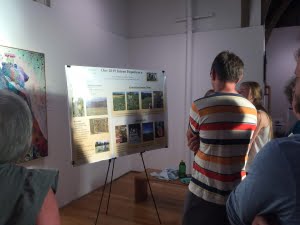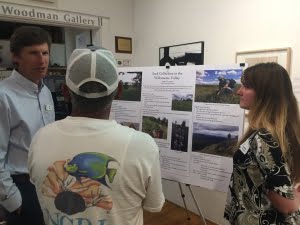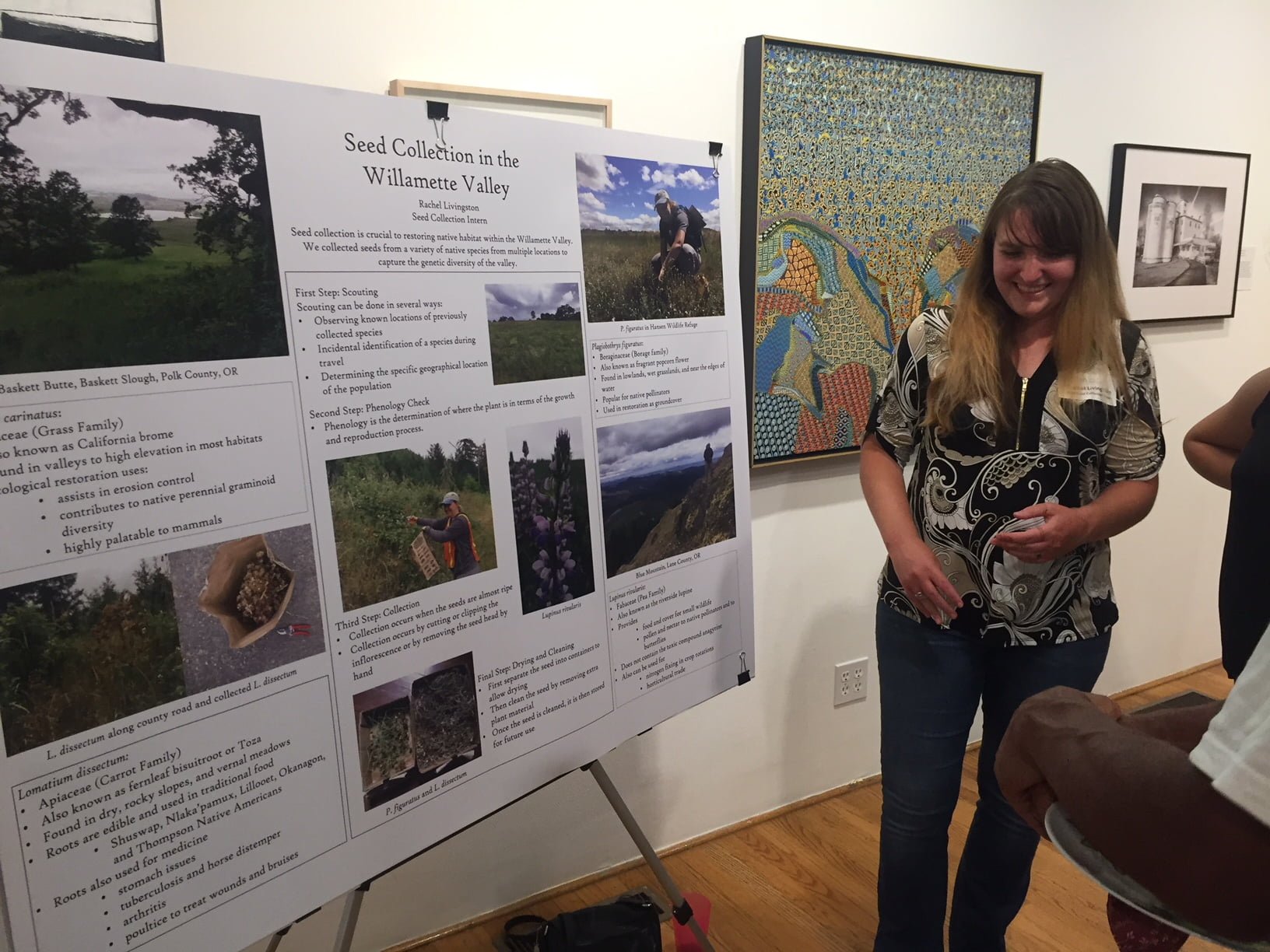
Every early-career scientist needs this, and our Internship Program provides it
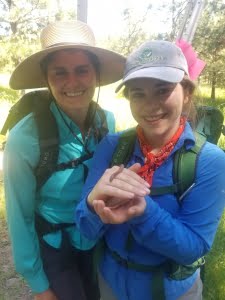
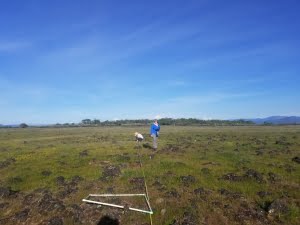
To convey their work to the community, IAE staff and interns hosted an Intern Showcase at the Corvallis Arts Center as the interns wrapped up their field season. Each intern prepared a poster presentation, and IAE members and supporters were invited to come see and interact with them about what they’ve learned. On a very warm July night, dozens of supporters gathered to hear an overview of the program and ask questions directly of the 2019 interns. “This is their event, and a chance to show everyone the skills they gained at IAE, and where they’d like to go next,” says Matt Bahm, IAE Conservation Research Program Director and Internship Program lead. “This is their opportunity to share their experiences.”
The interns showcased work they’d done, experiences they’d had, and what they learned during their season at IAE. Intern Eva Brod presented an “Interspecies Relationships” poster about native plants and their insect hosts. Golden paintbrush project interns Rose Parham and Erica Hunter presented about how they surveyed this threatened species. Cia Crowe bridged art and science in her poster, titled “Who Said Science and Art Don’t Go Together?” And Rachel Livingston presented a poster on her season as a seed collection intern. Guests were intrigued, and great conversations were had over refreshments in the beautiful Arts Center gallery.
IAE is training the next generation of ecologists to steward our natural areas into the future, and you can become involved. Please consider a donation to our Internship Program. Funds will go directly to support enrichment activities, including the intern showcase poster session, botanical and pollinator identification training, opportunities to network with local science and natural resource professionals, curriculum vitae building, mock interviews, and guidance for pursuing graduate school. If you’d like more information or to donate, please visit our Internship Program webpage.
Restoration
Research
Education
Get Involved
Contact
Main Office:
4950 SW Hout Street
Corvallis, OR 97333-9598
541-753-3099
[email protected]
Southwest Office:
1202 Parkway Dr. Suite B
Santa Fe, NM 87507
(505) 490-4910
[email protected]
© 2024 Institute for Applied Ecology | Privacy Policy
